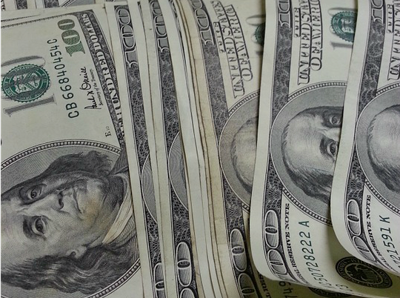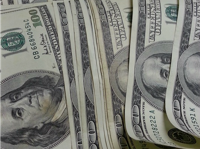Manassas staffers just discovered that the city’s been overcharging businesses on their tax bills for the last three years, and now lawmakers will need to find about $850,000 to correct that mistake.
The Manassas city council is just about to set a new budget for the 2018 fiscal year, and as staff researched the city’s tax rates and the state laws governing those fees, they discovered the costly slip-up. City Manager Patrick Pate and Commissioner of the Revenue Douglas Waldron gave lawmakers the bad news at a work session May 3, and the council is now set to vote May 8 on a proposed tax increase to help reimburse business owners.
“We all mistakes once in a while,” Pate said in an interview. “This is one we’ve made and we’ve caught, and we’re going to fix it and move on.”
Pate says the problem stems from a highly technical portion of the state code that dictates how localities can assess various taxes on businesses and property owners. Namely, it stipulates that the city can’t charge a higher fee on business personal property (like office furniture or equipment) than it can on “tangible personal property,” commonly cars, boats or trailers.
For years, Pate says the city was perfectly compliant with that standard. But as commercial real estate tax rates started to rise several years ago, he says, past councils decided to reduce the business property levy to keep things even.
When that trend reversed, the city council bumped that rate back up, and that’s where it got into trouble — the tangible property tax rate, commonly known as the “car tax” was at $3.25 per $100 of assessed value, while the business property tax sat at $3.70 per $100.
Pate says no one on the staff noticed the discrepancy, and the city didn’t hear from any business owners about the difference. After all, he estimates that most businesses only paid roughly $500 more than they should have over the three-year period.
“For an individual business, it’s not a tremendous amount of money, but we want to make sure we’re doing the right thing and following state statute,” Pate said. “So we found the error and we’re going to fix it.”
That process is going to require Waldron to study the personal property tax accounts of each one of the city’s roughly 1,500 businesses. So long as they’ve paid all their taxes and other bills to the city, staff will start handing out refunds.
Pate said the city collected about $710,000 in excess taxes over the years, and with interest, it now owes roughly $850,000 back to businesses. To make that payment, he’s proposing setting both the business property tax and the car tax to $3.60 per $100 of value, a change that council approved in a preliminary straw poll on May 3.
But that decision has rankled some council members, like Republican Vice Mayor Marc Aveni.
He’s concerned that Pate will use that car tax increase to play a “shell game” as council approves the new budget. The city manager originally called for a real estate tax increase, bringing the rate to $1.45 per $100 of assessed value, but Aveni suspects he’ll shrink that proposed bump slightly now that the car tax is going up.
“You’re raising taxes to lower taxes, which is silly,” Aveni said. “I think people see through that. It’s a game.”
Aveni notes that the real estate tax hike was already going to be part of “the largest tax increase the city of Manassas has ever seen,” bringing the average homeowner’s tax bill from $319 per month to $330. Pate is pushing for the increase to help fund his five-year construction plan, known as a capital improvement program or CIP, though Aveni worries that the council hasn’t fully thought through some of the projects he’s included in that document.
“There’s no prioritization,” Aveni said. “We’re going to do everything all at once.”
Much of the debate in the last council election centered around the very same issue, as Democrats accused the council’s Republican majority of keeping taxes artificially low at the expense of necessary investments in the city’s growth. The council is now evenly divided after the November elections, and Republican Mayor Hal Parrish is barred by city code from casting a tie-breaking vote on the budget.
But Aveni believes both the budget and CIP are set to pass, after the council agreed to the latest edition on a 4-2 straw poll vote — only Aveni and Republican Ian Lovejoy dissented. The vice mayor says Pate will present a new version of the real estate tax at the council’s May 8 meeting, then they’ll adopt a final version of the budget and the tax rates on May 10.
Aveni says this whole discussion was already set to be a contentious one, without this business property tax snafu. Now, he worries that the process of finalizing the budget might be quite messy indeed.
“I’m glad we caught it, but the timing is awkward because we’re right in the middle of the budget,” Aveni said. “Now we’re going to clean it up by raising another tax, so no one was pleased by this.”



(3) comments
Way to go Manassas City. Used to be a great place to live for many years but so glad we were able to move.
Last November, voters in Manassas decided to elect a slate of Democrats to Manassas City Council. Now, your taxes are being increased by these Democrats on City Council. Manassas residents are now getting what they voted for. Enjoy!
So who is losing their job over such an egregious error?
Welcome to the discussion.
Log In
Keep it Clean. Please avoid obscene, vulgar, lewd, racist or sexually-oriented language.
PLEASE TURN OFF YOUR CAPS LOCK.
Don't Threaten. Threats of harming another person will not be tolerated.
Be Truthful. Don't knowingly lie about anyone or anything.
Be Nice. No racism, sexism or any sort of -ism that is degrading to another person.
Be Proactive. Use the 'Report' link on each comment to let us know of abusive posts.
Share with Us. We'd love to hear eyewitness accounts, the history behind an article.